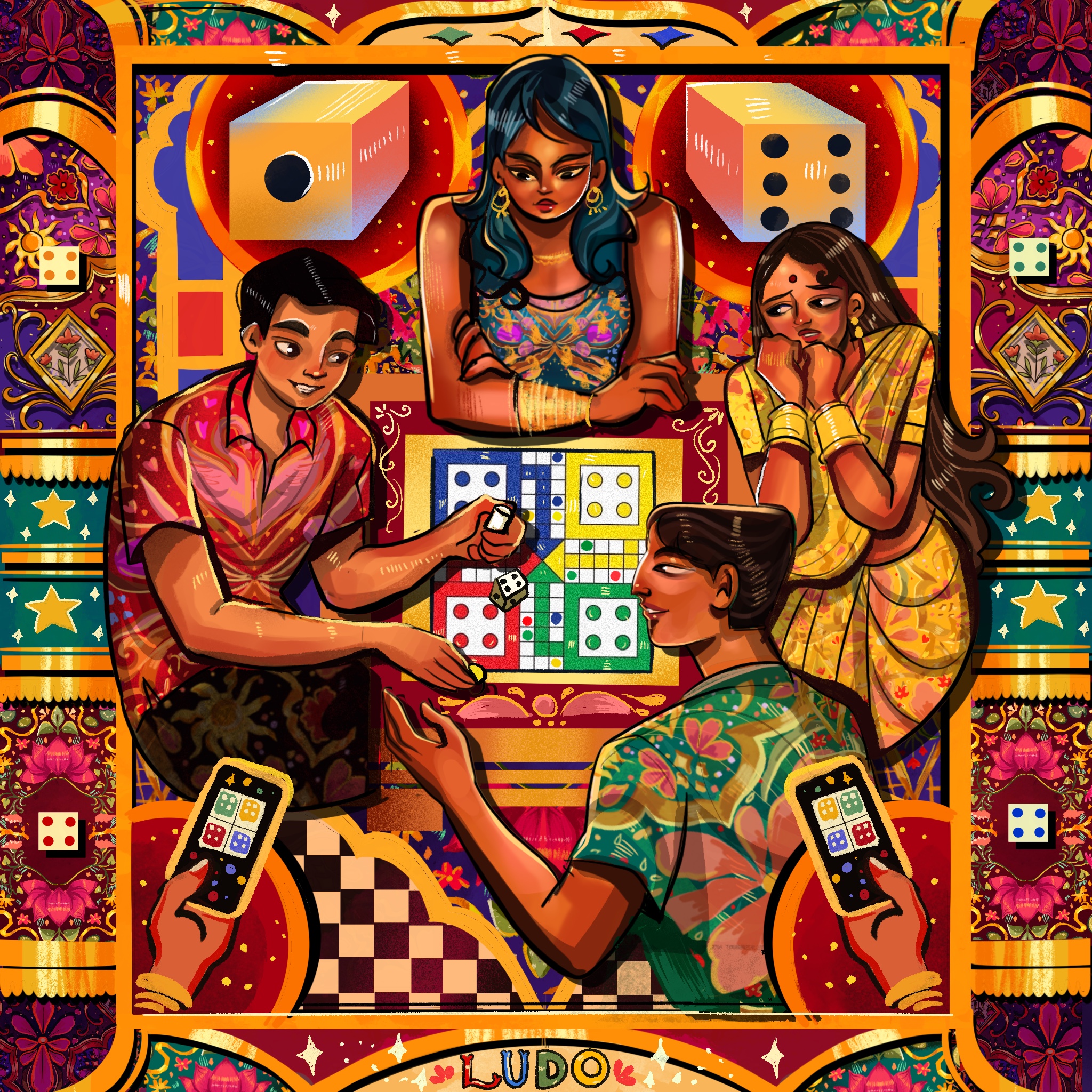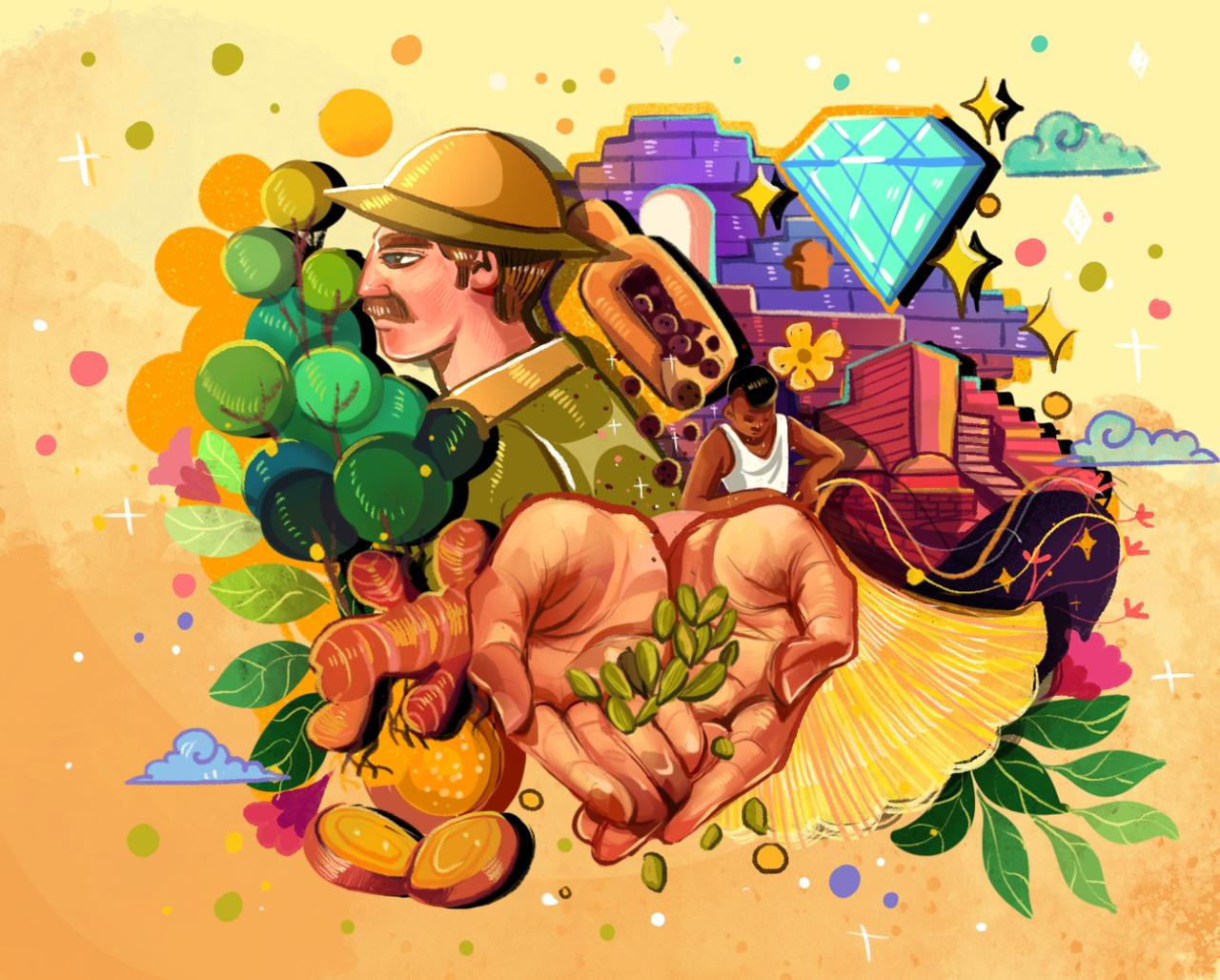Ludo, a widely enjoyed board game played by two to four participants, traces its roots back to the sixth century CE in India. Derived from the ancient Indian game Pachisi/Chausar, Ludo's evolution can be seen in the cave paintings of Ellora, offering a glimpse into its rich history. Although the precise origin remains elusive, it is believed that Ludo has been a part of Indian gaming culture for centuries.
Enjoy 0% GST on your policy premium. Get ₹1 Cr. Life Cover at just ₹22.5/day* + 10%^ Online Discount with IndiaFirst Life ELITE Term Plan (UIN 143N070V01). *^T&C Apply.
Know More
Tired of complicated insurance? We’ve made it effortless - Introducing IndiaFirst Life app-like tool Calculate, plan, and protect—all from your device. Your future is just a tap away.
Install now!

IndiaFirst Life Elite Term Plan

IndiaFirst Life Radiance Smart Invest Plan

IndiaFirst Life Elite Term Plan

IndiaFirst Life Radiance Smart Invest Plan

IndiaFirst Life Radiance Smart Invest Plan
Enjoy 0% GST on your policy premium. Get ₹1 Cr. Life Cover at just ₹22.5/day* + 10%^ Online Discount with IndiaFirst Life ELITE Term Plan (UIN 143N070V01). *^T&C Apply.
Know More
Tired of complicated insurance? We’ve made it effortless - Introducing IndiaFirst Life app-like tool Calculate, plan, and protect—all from your device. Your future is just a tap away.
Install now!

-
Term Insurance
-
Term Insurance Plans
-
Income Based Term Plans
-
Term Insurance Coverage Options
Term Insurance Coverage Options

-
Term Insurance for EveryOne
-
Term Insurance For Coverage for all Ages
Term Insurance For Coverage for all Ages

-
Term Insurance Calculator
Term Insurance Calculator

-
Term Insurance Riders
Term Insurance Riders

-
Term Insurance Plans
-
Life Insurance Plans
-
Term Insurance Plan
-
ULIP Plans
-
Savings Plans
-
Retirement & Pension Plans
-
Guaranteed Returns Plans
-
Life Insurance Rider
-
Group & Corporate Life Insurance Plans
Group & Corporate Life Insurance Plans

-
Child Insurance Plans
Child Insurance Plans

-
Term Insurance Plan
-
Tools & Calculators
-
Learn
-
Claim
-
Support
-
$ Plans for NRI’s

No results for
Check that your search query has been entered correctly or try another search.

Let Us know a suitable time for you.
Ask an Expert to Buy Life Insurance
We're happy to know that you're prioritizing your family's future. Our life insurance expert will assist you in finding the best insurance plan. To schedule a call, please share some of the below details.
Male
Female
Other

Thankyou for submitting your details
Our representative will reach out to you soon to guide you through our life insurance plans that fit your life goals
13 Aug 2024
Ludo: A Timeless Indian Board Game and its Global Evolution

Introduction
The Historic Ties
Referenced in the Indian epic Mahabharata, a game akin to Ludo was played by Maharajas, highlighting its significance in Indian history. The Ellora Cave paintings provide tangible evidence of a similar board game's popularity, depicted as an illustration on the cave walls. This historical connection firmly establishes Ludo as an indigenous creation of India, known by various names such as ‘Chaucer,’ ‘Chopad,’ and ‘Pachisi.’
Varied Mediums and Names
Throughout Indian history, Ludo assumed different names, including "Chausar," "Chopad," or "Pachisi." It found expression on diverse platforms, from cloth and slate to more formal board settings. The game's adaptability and widespread appeal underscore its deep-rooted cultural significance.
Evolution and Globalization
The modern iteration of Ludo received a patent in 1896, thanks to British national Alfred Collier. The British Royal Army played a pivotal role in popularising and transforming the game. Ludo and its variants have gained international acclaim, enjoyed under various monikers in different countries.
Technological Influence
Despite its ancient origins, Ludo persisted in its physical form during the Mughal era. With the advent of technology, the game underwent a global renaissance, transcending geographical boundaries. Virtual adaptations emerged, allowing players to enjoy Ludo remotely through applications and online platforms.
Conclusion
In conclusion, Ludo stands as a testament to the enduring appeal of board games and human creativity. Originating in ancient India as Pachisi/Chausar, Ludo has evolved into a globally recognized pastime. Its historical ties, evident in the Mahabharata and Ellora Cave paintings, showcase the game's enduring cultural significance. As Ludo continues to adapt to the changing times, its universal popularity ensures a secure place in the hearts of gamers across generations.
References
- Peepul Tree, Aditi Shah, 31st Oct 2017 (https://www.peepultree.world/livehistoryindia/story/living-culture/ludos-indian-roots)
Dawn, Zarrar Khuhro, 30th Jan 2023 (https://www.dawn.com/news/1734309/game-on)
Penn Museum, W. Norman Brown, 8th Apr 2024 (https://www.penn.museum/sites/expedition/the-indian-games-of-pachisi-chaupar-and-chausar/)
- Edu Aura
https://www.eduauraa.com/blog/history-of-ludo
- Madras Courier
https://madrascourier.com/insight/how-pachisi-an-indian-board-game-became-ludo
Find Your Favorite Topic
Subscribe to our Life+ newsletter for exclusive updates & smart financial guidance
विशेष अपडेट और स्मार्ट वित्तीय मार्गदर्शन के लिए हमारे लाइफ+ न्यूज़लेटर की सदस्यता लें
વિશિષ્ટ અપડેટ અને કુનેહભર્યા નાણાંકીય માર્ગદર્શન માટે અમારા લાઈફ+ ન્યૂઝલેટરને સબસ્ક્રાઈબ કરો
ప్రత్యేకమైన నవీకరణలు & స్మార్ట్ ఫైనాన్షియల్ గైడెన్స్ కోసం మా లైఫ్ + న్యూస్ లెటర్ సభ్యత్వాన్ని పొందండి.
निवडक अपडेट आणि उत्तम आर्थिक मार्गदर्शन मिळवण्यासाठी आमच्या लाईफ+ बातमीपत्राचे सदस्यत्व घ्या
பிரத்தியேக புதுப்பிப்புகள் மற்றும் ஸ்மார்ட் நிதி வழிகாட்டலுக்கு எங்கள் வாழ்க்கை + செய்திமடலுக்கு குழுசேரவும்

Thank you for subscribing to Life+ Newsletter!
Keep an eye on your inbox-great things are coming your way









